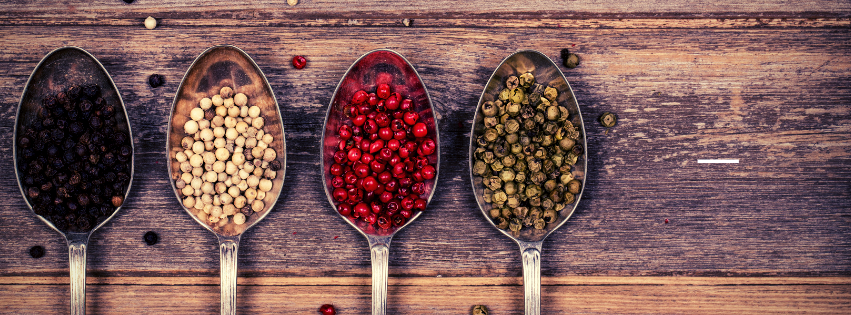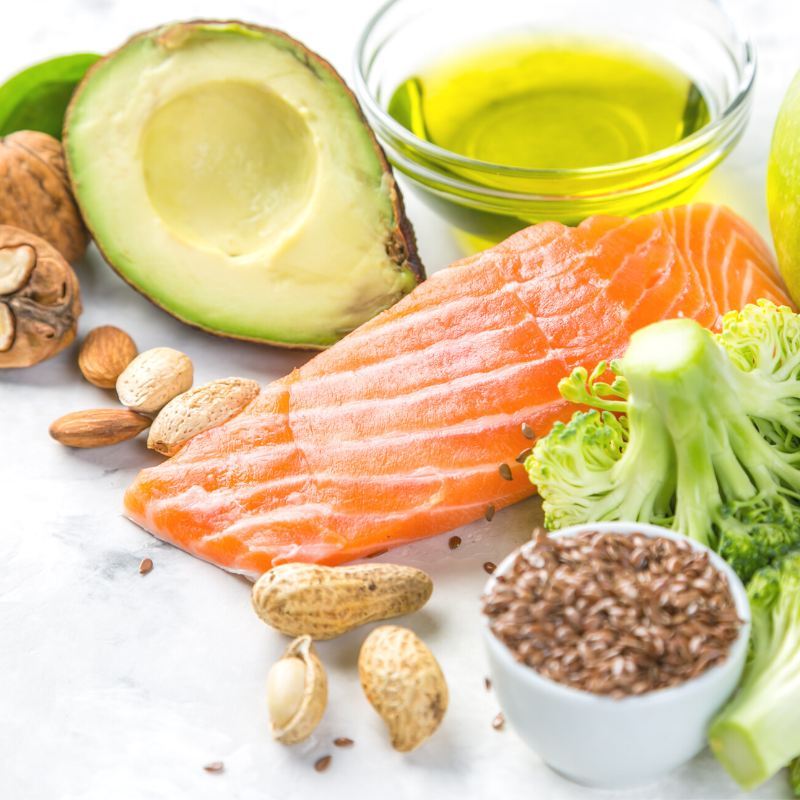New moms are often told to modify their diet as a means to improve their milk supply. Lactation cookies, supplements, oatmeal three times a day… These foods and products, commonly known as galactagogues, promise to increase milk production. However, research shows that there is little scientific evidence to actually support that idea that what you choose to eat (or in that same vein choose not to eat) impacts your breastfeeding success. Real talk, and I am sorry to disappoint many of you, but no amount of oatmeal consumption is going to make a difference in your milk supply. In reality the only way to truly improve breastfeeding success is through proper breastfeeding technique. This includes early initiation of breastfeeding (ideally within the first hour of life), frequent feeding (emptying of the breast frequently stimulates prolactin,the hormone responsible for milk production, thereby increasing supply) and proper latch position. If you are breastfeeding and are concerned about your milk supply, instead of turning to biscuits or teas as a solution ask for help! It is highly recommended that you meet with a certified lactation counselor to help you. MaternalWell, offers on-demand, virtual lactation consultants that can support you throughout the postpartum.

What to Eat
Although there are no specific foods that can increase your supply, breastfeeding women do have specific nutrient needs. Like pregnancy, breastfeeding requires extra nutrition in order to ensure optimal levels of macro and micro nutrients for both mom and baby. Nutrient deficiencies are common in the postpartum period, and can have a negative impact on energy levels, cravings, mental health, and the amount of micronutrients in breastmilk. As a general rule of thumb I recommend all of my breastfeeding moms continue with their prenatal vitamins to ensure they are meeting all of their nutrient requirements.
Here are some foods that you should include in your diet if you are breastfeeding to support post-birth recovery and ensure adequate nutrient levels.
- Antioxidant rich vegetables: Anything from the brassica family (cauliflower, broccoli, kale, brussel sprouts, cabbage) or allium family (garlic, green onion, leeks, onion) are particularly rich in powerful antioxidant compounds. They also contain high amounts of dietary fiber, which binds to excess hormones and toxins in the body and supports their elimination. These foods are also great for postpartum weight loss because they are high in volume and nutrition but low in calories. As a general rule of thumb, aim to get at least 1-2 cups of vegetables at lunch and dinner.
- Omega-3 Fats: The “holy grail” of anti-inflammation. Omega-3s are a type of polyunsaturated fat that helps to reduce inflammation and promote stable blood sugar. The best source of Omega-3 Fats are eicosapentaenoic acid (EPA) and docosahexaenoic acid (DHA). Research also shows that Omega-3s and specifically DHA are important for newborn brain and CNS development. This is important because while we cannot change the amount of fat in the breastmilk based on diet alone we CAN change the TYPE of fat. These beneficial Omega-3 fats are found in fish like salmon, tuna, sardines and herring. However, for vegetarians or those who dislike fish there are also plant based sources of omega-3s called alpha-linolenic acid (ALA). ALA can be converted to the other two forms (EPA/DHA), but unfortunately, this conversion process is pretty inefficient…which means we need to consume a LOT more. If you are vegetarian I recommend taking either an algal based Omega-3 supplement or adding 2 tbsp per day of plant based omega-3s (chia seeds, walnuts, flax seeds, hemp seeds, pumpkin seeds) to your meals.
- B Vitamins: B6, B12 and Folate are commonly depleted in women’s diets, especially in the postpartum. Low levels of B vitamins often contribute to postpartum fatigue. Adding an extra dose of B Vitamins can help to support stable energy levels. You can easily amp up your intake by incorporating foods that are rich in these B Vitamins. B6 and B12 are commonly found in animal proteins (chicken, beef, turkey, fish, eggs, dairy). Therefore, vegans/vegetarians also need to be especially conscious of their intake to ensure their breast milk remains an adequate source for their infant. If you do not eat any animal protein, I definitely recommend taking additional supplementation. Folate, is another important B vitamin. Folate supplementation in combination with supplemental iron has been shown to reduce the risk for anemia in the postpartum. Folate, unlike B6 and B12, is found in a variety of plant based foods such as leafy greens, avocado, lentils, and chickpeas.
- Vitamin D: Actually a hormone, not a vitamin, Vitamin D in the postpartum period is essential. Studies also show a potential link between Vitamin D deficiency and postpartum mood and anxiety disorders (PMAD). Aside from trying to get 10-15 minutes of unprotected sun every day, supplementation is really the best way to get this nutrient. Make sure to look for vitamin D3 over D2 as research shows this form is best utilized by the body. However, you can find Vitamin D in certain foods such as egg yolks, salmon, prawns, and fortified cereals.
- Trace Minerals such as Zinc, Selenium, and Magnesium: These trace minerals are often overlooked but deficiency can lead to fatigue, cravings and impede weight loss. Selenium is high in antioxidant rich compounds, and is an essential nutrient for healthy thyroid function. Brazil nuts are a great source of selenium. Zinc plays an essential role in supporting a healthy metabolism and is commonly found in animal proteins, chickpeas, mushrooms, hemp seeds. Magnesium deficiency is common because of its relationship with our stress levels. High levels of stress deplete magnesium levels, and low magnesium levels in turn increase our body’s stress response. It is a vicious cycle, and low magnesium levels often manifest as breastfeeding cravings, change in appetite, anxiety, mood swings and potentially even PMAD. Almonds, lentils, and spinach are great sources of magnesium, but supplementation may also be necessary if levels are extremely low.
- Calcium: Calcium stores are depleted during pregnancy and breastfeeding by about 3-5% on average. Therefore it is essential to ensure new moms are focused on consuming calcium rich foods. The most obvious source of calcium is dairy products (milk, yogurt, cheese, etc). If you do not consume dairy, try to incorporate calcium rich foods into your diet such as sesame seeds, tahini, tofu, edamame, fortified nut milks, chickpeas, canned sardines or salmon (with bones), turnips, collard greens, broccoli and kale.
- Iron: Iron is especially important to focus on post birth. For breastfeeding mom’s adequate iron is even more essential because of its role in supporting proper development and a healthy thyroid. The best iron sources include apricots, peas, tofu, liver, eggs, and beef.
Healthy Weight Loss While Breastfeeding
Weight loss is also a common goal of postpartum moms. However, if you are breastfeeding typically I recommend a minimum of 1800 calories in order to ensure adequate nutrition. While research shows that very low calorie diets do not impact milk supply, they can impact the nutrient quality of breastmilk. Therefore, it is important to remember that the focus of the diet for breastfeeding mothers should be on balance, in order to support infant nutrition and postpartum recovery. If you are interested in healthy weight loss in the postpartum it is best to do so under the guidance of a registered dietitian. MaternalWell offers easy to book virtual sessions and are easy to squeeze in during nap times.
The initial postpartum period should be viewed as a time for rest and recovery. During postpartum our body continues to go through many hormonal changes as we begin to level out. Diet and lifestyle can play an important role in balancing our hormones in the postpartum period. Certain foods such as diary, caffeine, added sugar, and alcohol are common triggers to hormonal imbalance. These foods can influence hormones either directly by creating inflammation in the body or indirectly by creating blood sugar imbalances. Additionally, chemicals, artificial ingredients, preservatives, and other artificial ingredients that are found in certains foods can disrupt our endocrine system.
Here is a list of foods that I generally recommend limiting in the postpartum period for optimal healing and hormonal balance.
- Dairy (if you choose to consume dairy products, make sure it is full fat, organic). Instead try plain coconut yogurt, unsweetened nut milks and nut based cheeses.
- Added Sugar and Artificial Sweeteners. Instead snack on fruit, 70% dark chocolate, and use cinnamon to add natural sweetness.
- Processed vegetable oils (margaries, canola oil, vegetable oil, grapeseed oil). Instead use olive oil, avocado oil or organic grass-fed ghee.
- Preservatives and Additives. Instead opt for foods that are preservative and additive free.
- Excessive coffee (more than 8-12oz per day). Instead stick to about 1 cup and replace your second cup with matcha tea.
- Excessive alcohol (more than 1 drink per day). Instead try seltzer with bitters and fresh lime or a zero proof cocktail (seedlip, curious elixirs, ritual).
The bottom line when it comes to postpartum nutrition: Generally try to aim for a diet that is rich in plant based foods like non-starchy vegetables, whole grains, fruit, healthy fats like nuts, seeds, avocado, olive oil, and lean proteins over highly processed foods.
The postpartum is challenging. Yes motherhood is natural, but that does not mean it is always instinctual, especially when it comes to breastfeeding. Remember mamas, you’re not alone and asking for help is okay! We are here to support you! Learn more about our nutrition and lactation services and schedule a virtual visit with one of our licensed specialists.
Please visit us at maternalwell.com.


